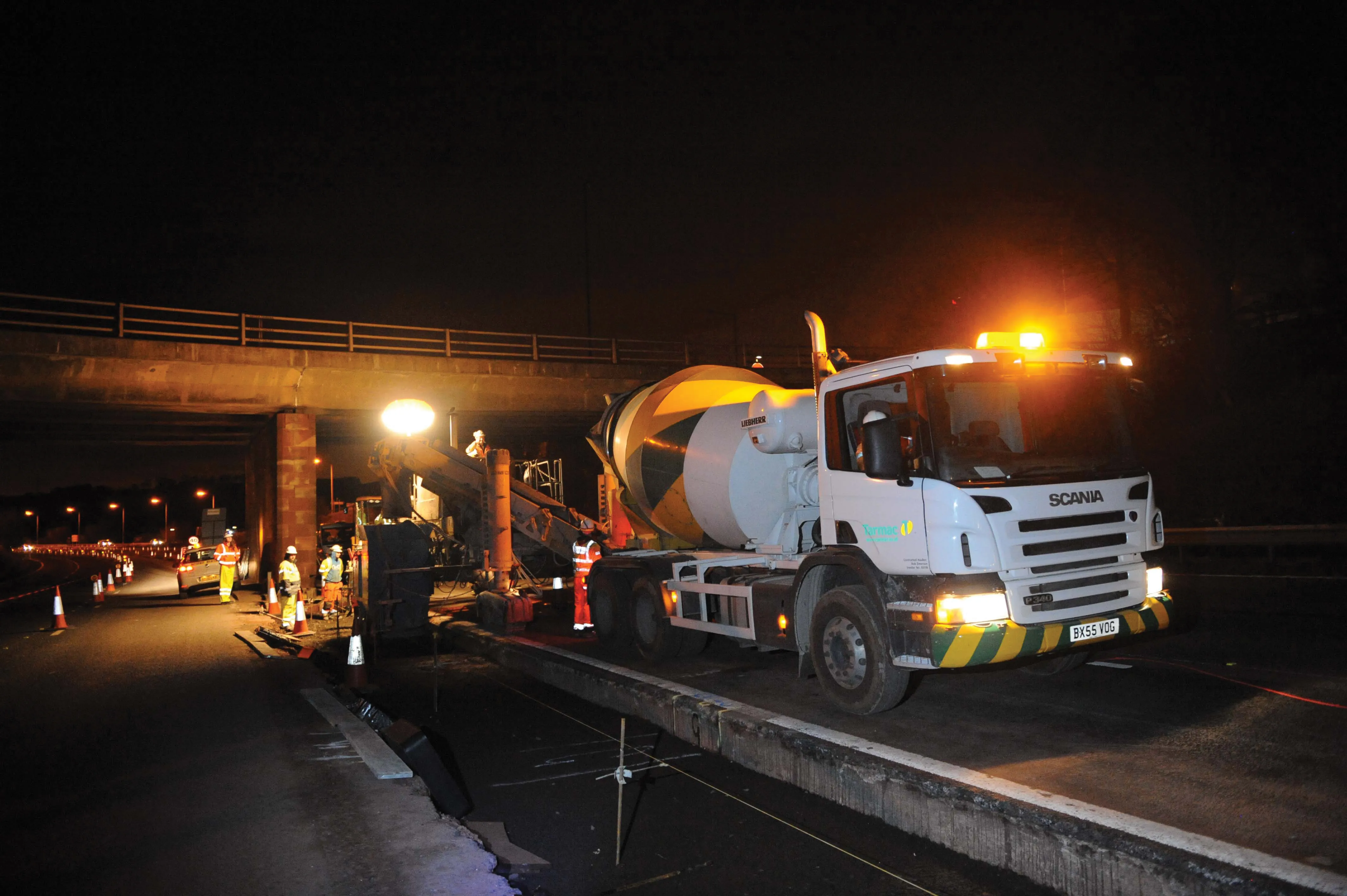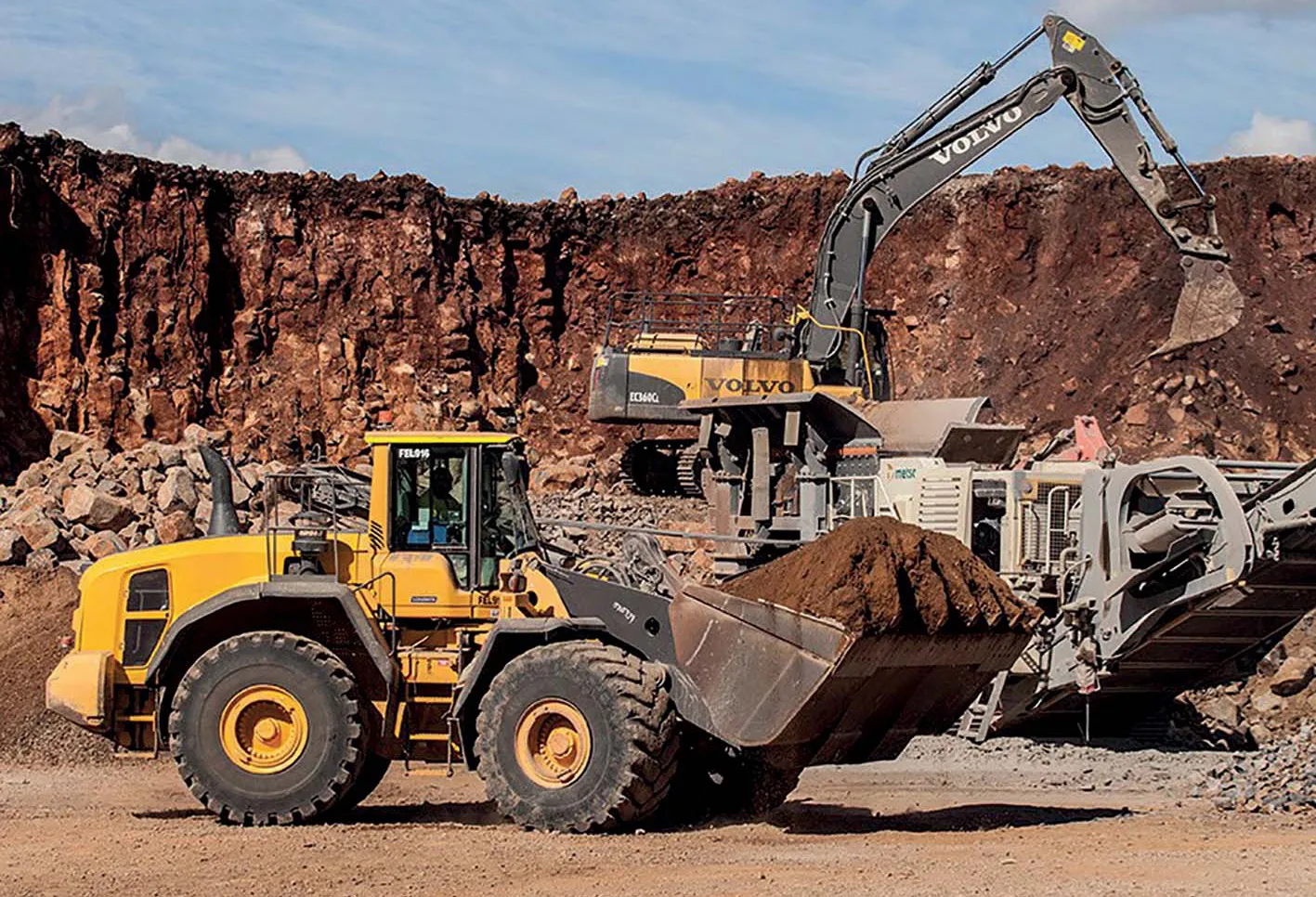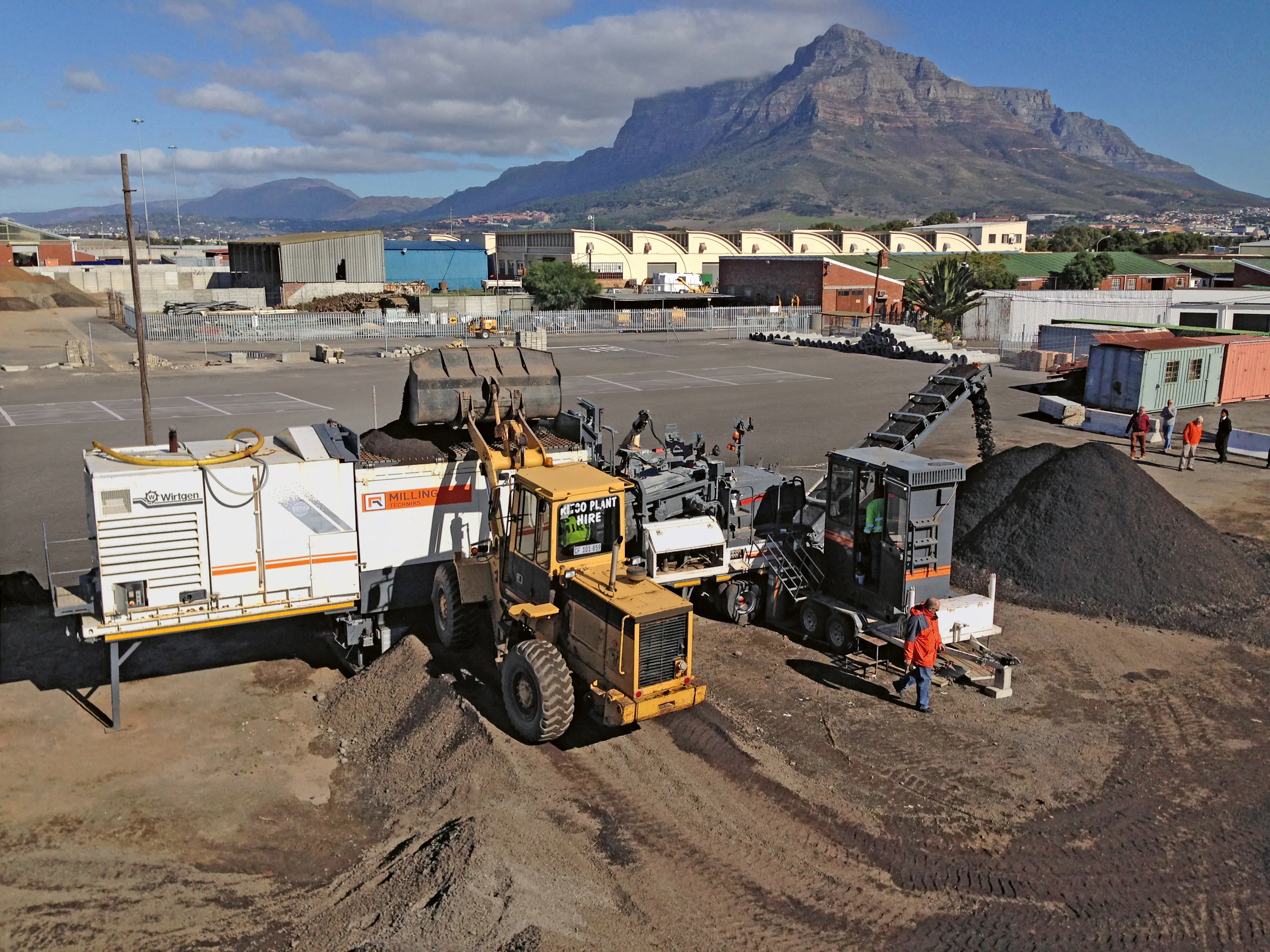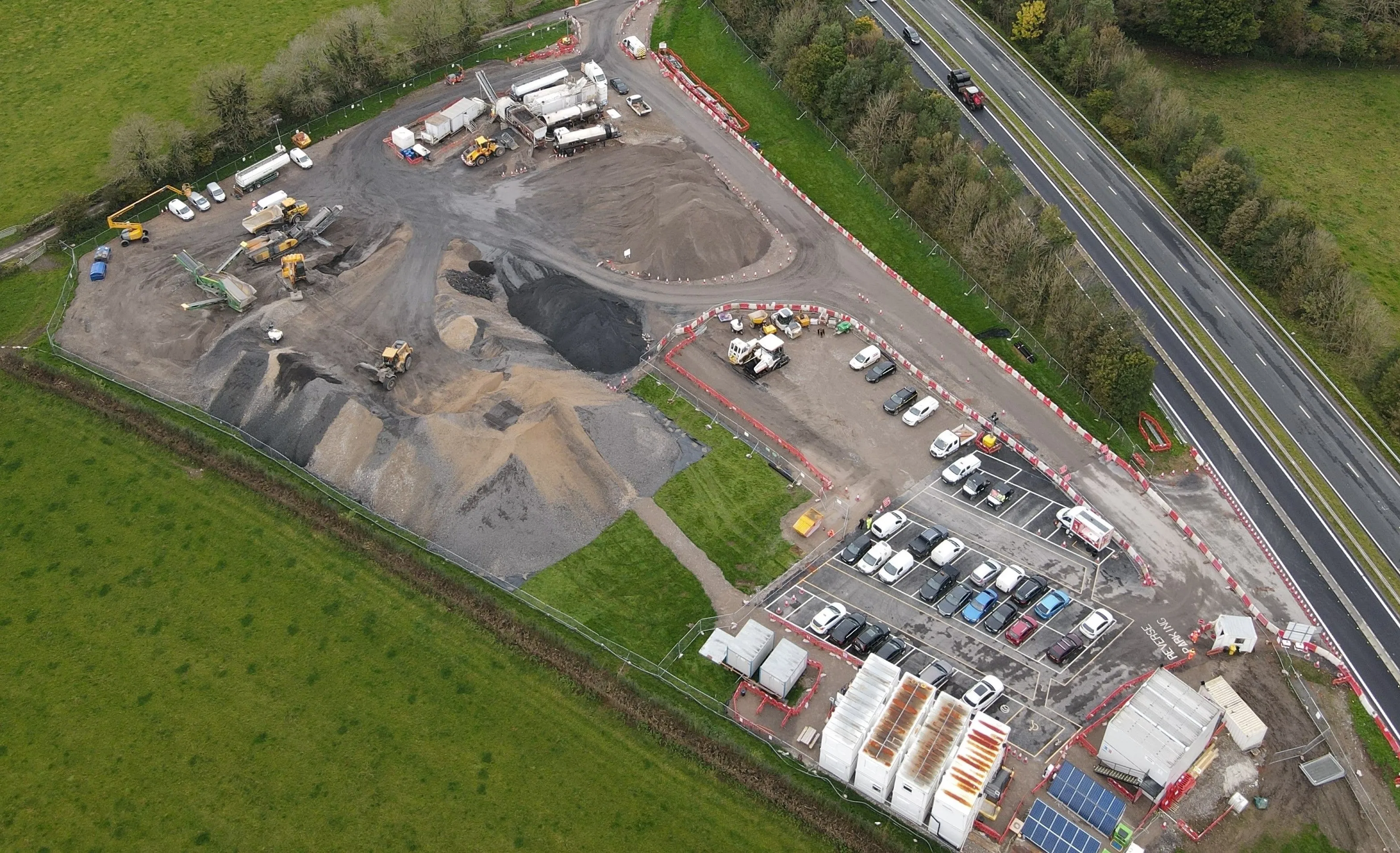Contractor Tarmac has carried out major works on the UK’s M5 motorway after recycling around 30,000tonnes of concrete and providing 8,000m3 of new concrete for new slip-form central barrier works. The project, between Junctions 3 and 4a of the M5, was delivered as part of an eight-week scheme to install 13km of new concrete safety barrier. Approximately 30,000 tonnes of concrete were excavated and then crushed into Type 1 and 6F5 aggregates at Tarmac’s recycling site in Ettingshall, Wolverhampton. Over 14,0
October 30, 2012
Read time: 2 mins

Contractor 2399 Tarmac has carried out major works on the UK’s M5 motorway after recycling around 30,000tonnes of concrete and providing 8,000m3 of new concrete for new slip-form central barrier works. The project, between Junctions 3 and 4a of the M5, was delivered as part of an eight-week scheme to install 13km of new concrete safety barrier.
Approximately 30,000 tonnes of concrete were excavated and then crushed into Type 1 and 6F5 aggregates at Tarmac’s recycling site in Ettingshall, Wolverhampton. Over 14,000tonnes of the recycled aggregates have already been deployed on local construction schemes.
Overnight works saw excavated material transported from the site, stockpiled locally, and reprocessed, with as many as 40 trucks bringing in around 1,700tonnes/night throughout the initiative. Night working was carried out to reduce daytime traffic congestion for road users during peak periods.
Tarmac’s Stourport depot in the West Midlands supplied the concrete for the new barrier which was constructed by Extrudakerb. Tarmac says that recycling materials helps reduce landfill needs, minimises transport and cuts carbon emissions.
According to the firm, this particular project shows its ability to handle large volumes of materials for recycling, while also using this feed to provide high quality recycled and secondary aggregates.
The company’s latest Sustainability Report reveals that, since 2004, the company has reduced waste to licensed disposal by 95%.
Approximately 30,000 tonnes of concrete were excavated and then crushed into Type 1 and 6F5 aggregates at Tarmac’s recycling site in Ettingshall, Wolverhampton. Over 14,000tonnes of the recycled aggregates have already been deployed on local construction schemes.
Overnight works saw excavated material transported from the site, stockpiled locally, and reprocessed, with as many as 40 trucks bringing in around 1,700tonnes/night throughout the initiative. Night working was carried out to reduce daytime traffic congestion for road users during peak periods.
Tarmac’s Stourport depot in the West Midlands supplied the concrete for the new barrier which was constructed by Extrudakerb. Tarmac says that recycling materials helps reduce landfill needs, minimises transport and cuts carbon emissions.
According to the firm, this particular project shows its ability to handle large volumes of materials for recycling, while also using this feed to provide high quality recycled and secondary aggregates.
The company’s latest Sustainability Report reveals that, since 2004, the company has reduced waste to licensed disposal by 95%.









